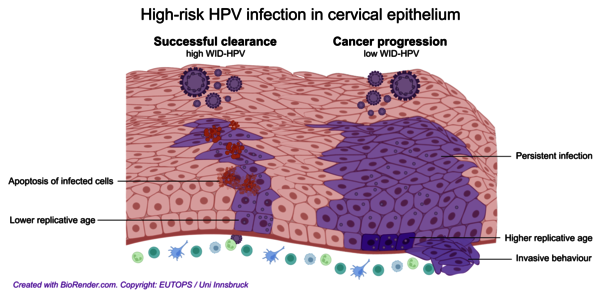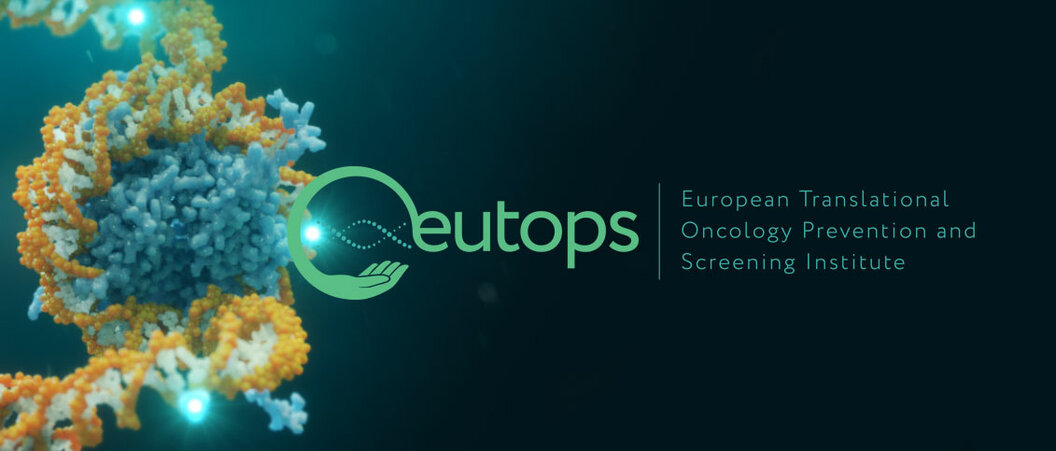A new publication from Professor Martin Widschwendter and the EUTOPS team in the International Journal of Cancer describes the development of cervical cancer as a result of Human Papilloma Virus (HPV) infection. Specifically, the study examined how the body fights human papillomavirus (HPV) infection on a molecular level and what distinguishes women who do and women who do not successfully clear the HPV infection and progress to developing cervical cancer. The team utilised the WID-HPV index, a DNA methylation signature that captures DNA methylation changes in a woman’s epigenome.
The team explored the differences in the epigenome of cervical cells collected from women with and without HPV infection. Factors that drive faster cell divisions in the cells responsible for maintaining healthy tissues (called stem cells or progenitor cells) are linked with the cells’ inability to die after HPV infection. Known factors driving faster cell divisions include chronic infections and lifestyle behaviour such as smoking. The research strongly supports the view that HPV vaccination, which protects against chronic HPV infection, and other factors reducing the speed of cell divisions, such as not smoking, may help increase the body’s self-defence against the virus and reduce the chances of cervical cancer developing.
Read the research at the “Read more “ link below:




